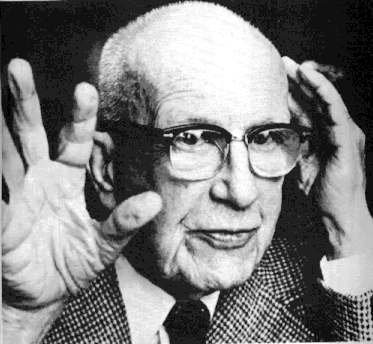NOTE: As we shall see, the political stance represented by the GcG is not the one of the partisanship; not even of the 99% vs 1% kind. On the contrary. Our agenda — which we hope to share with you by the end of your vision quest — is of the "We are the 100%" kind.
All of us will benefit tremendously by playing collaboratively to improve our societal structures, including finance; as the following story will illustrate.
Charles Ferguson got a degree in mathematics from UC Berkeley, and a doctorate in political science from MIT. Remained as a post-doc at MIT, and at the same time consulted for some distinguished clients like the White House and the Pentagon, and for large high-tech firms in the US and Europe. In 1994 decided to go into business himself, started a company that produced FrontPage, the first WYSIWYG Web page editor. Two years later sold the company and the software to Microsoft for 133 million.
So imagine that you are an intelligent person with an insider's knowledge of politics and economy, free from time and money constraints. What would you do? Ferguson decided to share his insights by making documentaries. So far he created two. His second film, “Inside Job,” won the Academy Award as best documentary in 2010. The film shows that the 2008 financial crisis was a product of (let's call it that way) pathological or delinquent evolution of the financial services industry; and how in this expansion of renegade power, even the US government was not spared from its influence (notice the sentence "It's a Wall Street government" in the trailer).
Ferguson’s first film, No End in Sight, was nominated for Academy Award in 2007. This film is about the war in Iraq 2001. But it could be — and this is how we quote it here, as an example or a metaphor — about any war, or any issue globally. The movie shows that the reasons for starting this war were not the ones that were given to the public. We see that other, unstated interests were at play. We see incompetence and carelessness of the people in power, resulting in destruction of this country’s infrastructure' we see the country plunging into chaos.
We complete our story by making a brief visit to England, and taking a look at the work of Britisn journalist David McCandless, his so-called
Billion-Dollar-o-Gram.
The Billion-Dollar-o-Gram represents issues by rectangles, and the number of billions of dollars they might cost to take care of by the areas of those rectangles.
We see immediately that two rectangles vastly dominate the picture—the ones corresponding to the two issues Ferguson pointed at in his two documentaries. We see that causes such as “Save Amazon” or “To lift one billion people out of extreme poverty” would cost just a tiny fraction of the cost of those two.
REFLECTION (Money lost) The Billion-Dollar-o-Gram is of course just a rough estimate, and a sketch. Yet it points at a general conclusion that you intuitively surely already knew—that our use of resources is vastly misdirected. Directing the resources is the function of the 'financial services industry.' Contemplate the resources that were misused or 'lost' as a result; what could have we done
REFLECTION (Projects not financed)
REFLECTION (Systemic evolution)
REFLECTION (Cultural evolution and human condition)
Vision: The end of scarcity may be within reach

Around 1970 Buckminster Fuller predicted that by the turn of the millennium we would reach ‘the end of scarcity’ —i.e. that science and technology would have advanced so much, that there would be no need for competition, because everyone’s needs could be amply taken care of.
The-Billion-Dollar-o-Gram hints that Fuller may have been right; our problem may no longer be the lack of resources, but the way in which our resources are allocated and used.